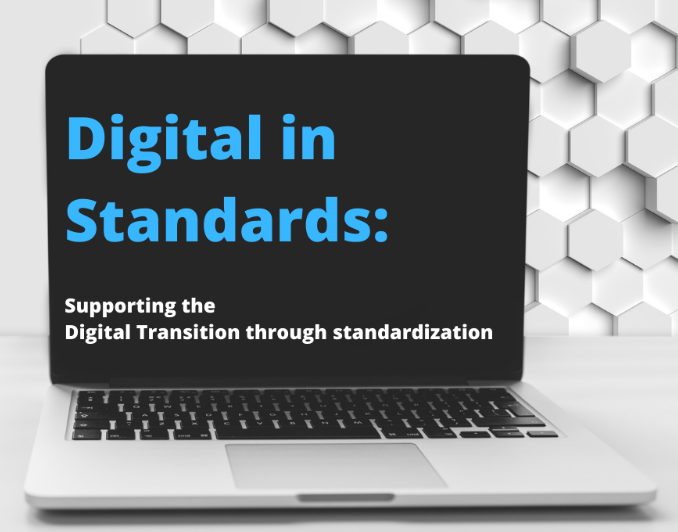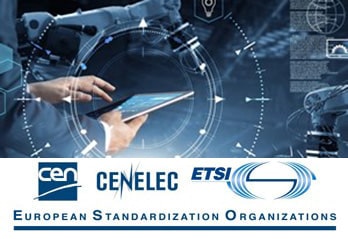The insurance business is rapidly migrating from paper-based processes to the digitalization and automation of electronic processes. These electronic business processes take place between independent organizations, which leads to a variety of information formats being used. To facilitate this information exchange, there is a need for the standardization of the data formats being used.
The European standards developed by CEN/TC 445 ‘Digital information Interchange in the Insurance Industry’ are focused on the information exchange between insurance companies and their customers and market partners, e.g., brokers, portals, service providers, and other insurers. In November 2020, CEN/TC 445 published the European standard EN 17419-1:2020, which specifies the transfer of electronic documents.
As a follow-up to this Standard, CEN/TC 445 recently published CEN/TR 17419-2:2021 'Implementation Specification for EN 17419-1'. This European technical report describes a concrete specification for an implementation of the EN 17419-1 in a microservice architecture, using REST/JSON based on the Open API 3.0 specification. In addition, it contains a complete API definition for the services implementing the transfer of documents.
DIN, DKE & VDI developing the German Standardization Roadmap for Circular Economy
Together with the German Federal Ministry for the Environment, Nature Conservation and Nuclear Safety (BMU), the German Institute for Standardization (DIN) and the German Commission for Electrical, Electronic & Information Technologies (DKE) of DIN and VDE and the Association of German Engineers (VDI) have announced the launch of the German Standardization Roadmap Circular Economy. The aim of the Standardization Roadmap is to provide an overview of the status quo of standardization in the field of Circular Economy, describe the requirements and challenges for seven key topics, and identify possible concrete needs for action for future standards and specifications.
-
Essential support for climate targets: The Circular Economy is of particular importance in achieving the goals of the Green Deal and the Climate Change Act 2021. To achieve the ambitious climate protection targets, new and revised technical rules for the Circular Economy are now needed. The Standardization Roadmap Circular Economy will set the path for this, thus driving forward the green transformation of Germany and Europe.
-
Seven key topics set: The Roadmap will focus on the following key topics: Electrotechnology and ICT, batteries, packaging, plastics, textiles, construction & municipalities, and digitalization/business models/management. These are based on the key topics of the EU's Circular Economy Action Plan. With a German Standardization Roadmap for Circular Economy, specific national standardisation needs will be identified with the aim of feeding them into the European and international standardisation bodies.
The Digital Transition is an opportunity for Europe to boost its competitiveness in global markets. European Standards play a key role in this ambition, seeing as they:
-
promote security and safety for products and services
-
build trust in emerging technologies
-
work to find consensus and enable state of the art solutions for Europe
This brochure is meant to highlight not just what exists for the future of standardization in the digital transition, but to look at the new and exciting fields that standardization plans to explore.
A New Standard Contributes to Improving the Energy Efficiency of Jet Fans
When talking about energy efficiency, one of the most overlooked appliances is fans. Fans of all types are used for ventilation and air conditioning, for process engineering, and agriculture. Their energy use has been calculated as nearly 20% of total worldwide energy usage. To ensure that the fan performance characteristics are common throughout the world, a series of standards has just been developed by ISO and adopted by CEN.
Among these, the recently published EN ISO 12759-5 'Fans-Efficiency classification for fans - Part 5: Jet fans' establishes a classification of fan efficiency for all jet fan types driven by motors with an electrical input power range from 5,5 kW to 155 kW. Jet fans are used for producing a jet of air in a space, unconnected to any ducting. They find applications in the control of quality of air in vehicle and train tunnels, as well as in enclosed car parks, and their use has become increasingly popular (from EN ISO 13350:2015 'Fans - Performance testing of jet fans').
This document was prepared by Technical Committee ISO/TC 117 'Fans', in collaboration with the CEN/TC 156 'Ventilation for buildings', whose Secretariat is held by BSI, the British Standards Institute.
The event is dedicated to discussing a study DIGITALEUROPE carried out on the future of cybersecurity for the Internet of Things (IoT). The study takes place in a context of enhanced attention to ensuring the security of IoT devices and makes proposals for decision-makers: the European Commission has put forward several policy proposals to introduce cybersecurity requirements on connected devices. Furthermore, the IoT, in both its consumer and industrial aspects, is also expected to be one of the future areas for cybersecurity certification pursuant to the Cybersecurity Act.
After the presentation of the results, CEN and CENELEC’s work on cybersecurity was presented during an interactive discussion with other high-level speakers, representing the European Commission, civil society organisations, national authorities, the industry and other European Standards Organisations. More information on the panel and on how to subscribe are available on DIGITALEUROPE’s website.
Industrial data has become one of the top strategic priorities for European and international industry in the recent years. Well managed and duly exploited, industrial data bring a significant competitive edge to businesses and can greatly improve overall efficiency, be it by supporting core processes or by providing a new source of insights.
In this data-driven era, industrial data play an essential role in building the foundation of the next wave of digitization in Europe. For this reason, it is key to the success of a harmonised Single Market and European competitiveness in the global market, but also for the success of the twin transition (green and digital) at the heart of the EU policy agenda.
Industrial data is of ever-increasing importance for companies in Europe and the world, and particularly so in the context of the digitization of industry. On this topic, on 28 Sept, CEN, CENELEC and ETSI co-organised an online stakeholders’ workshop dedicated to exploring how standards can support the industrial data value chain.











